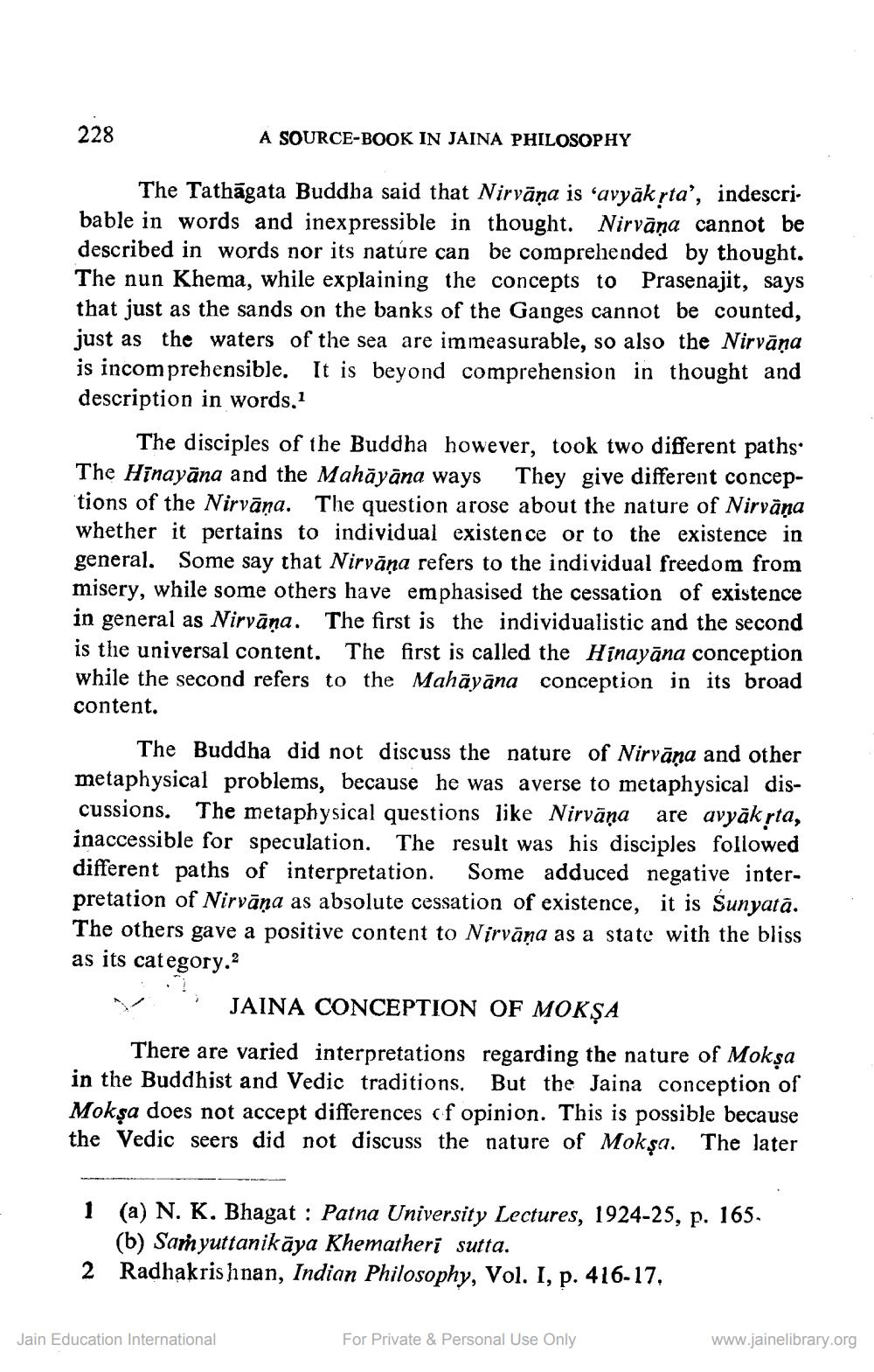________________
228
A SOURCE-BOOK IN JAINA PHILOSOPHY
The Tathāgata Buddha said that Nirvana is ‘avyāk şta', indescribable in words and inexpressible in thought. Nirvāna cannot be described in words nor its nature can be comprehended by thought. The nun Khema, while explaining the concepts to Prasenajit, says that just as the sands on the banks of the Ganges cannot be counted, just as the waters of the sea are immeasurable, so also the Nirvāņa is incomprehensible. It is beyond comprehension in thought and description in words.
The disciples of the Buddha however, took two different paths The Hinayāna and the Mahāyāna ways They give different conceptions of the Nirvāna. The question arose about the nature of Nirvāņa whether it pertains to individual existence or to the existence in general. Some say that Nirvāṇa refers to the individual freedom from misery, while some others have emphasised the cessation of existence in general as Nirvāņa. The first is the individualistic and the second is the universal content. The first is called the Hinayāna conception while the second refers to the Mahāyāna conception in its broad content.
The Buddha did not discuss the nature of Nirvāna and other metaphysical problems, because he was averse to metaphysical discussions. The metaphysical questions like Nirvāņa are avyāk sta, inaccessible for speculation. The result was his disciples followed different paths of interpretation. Some adduced negative interpretation of Nirvāņa as absolute cessation of existence, it is Sunyatā. The others gave a positive content to Nirvāṇa as a state with the bliss as its category.?
» JAINA CONCEPTION OF MOKŞA
There are varied interpretations regarding the nature of Mokşa in the Buddhist and Vedic traditions. But the Jaina conception of Moksa does not accept differences of opinion. This is possible because the Vedic seers did not discuss the nature of Mokşa. The later
1 (a) N. K. Bhagat : Patna University Lectures, 1924-25, p. 165.
(b) Samyuttanikāya Khematheri sutta. 2 Radhakrishnan, Indian Philosophy, Vol. I, p. 416-17,
Jain Education International
For Private & Personal Use Only
www.jainelibrary.org




